The 15 most amazing women in science today
Cori Bargmann is uncovering the causes of neurological conditions such as Alzheimer’s and autism.

Cynthia Kenyon is developing ways to help us live longer and healthier lives.
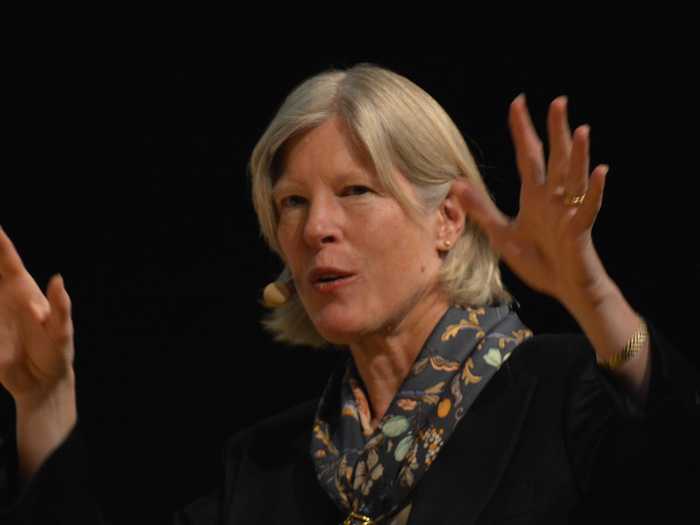
Cynthia Kenyon joined Google's Calico venture last year, where she helps a team of scientists develop methods to slow aging and prevent age-related diseases.
The goal of Calico is to extend human lives by up to 100 years. Kenyon gained prominence in the science community in 1993 for her discovery that altering a single gene in roundworms could double their life span. Since then, Kenyon has pioneered many more breakthroughs in aging research, including pinpointing which genes help us live longer and determining that a common hormone-signaling pathway controls the rate of aging in several species, humans included.
Kenyon is the vice president of aging research at Calico.
Elizabeth Holmes developed a groundbreaking blood test that will transform the future of healthcare.
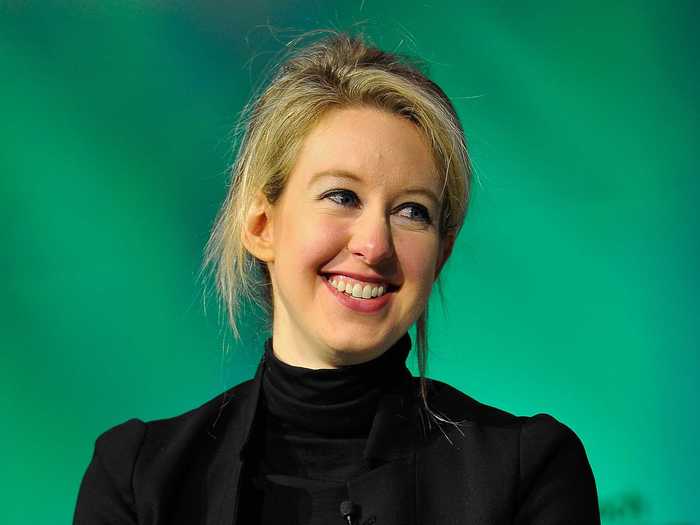
Not only is Holmes on a mission to change the healthcare industry, she's the youngest self-made female billionaire in the US.
Holmes dropped out of Stanford during her sophomore year to create Theranos, a blood-testing company that uses a prick of blood to get the same test results as you’d get from an entire vial. The concept is disrupting and revolutionizing the industry by making blood tests faster, simpler, and, most important, cheaper. Theranos has raised $400 million in funding.
Holmes is the founder and CEO of Theranos.
Emily Levesque is discovering the hidden mechanisms driving the formation and collapse of massive stars and galaxies.
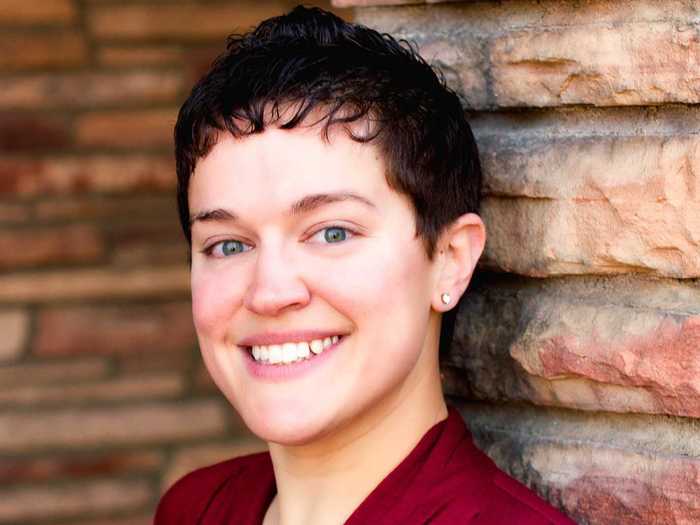
As a Hubble Fellow, Emily Levesque works to improve our understanding of massive stars by building models of galaxies and analyzing wavelength data. Her breakthroughs in understanding these immense stellar bodies will allow researchers to take advantage of advancements in space technology. In the past few years, Levesque and her team updated models of star-forming galaxies, focusing on how they are affected by rotation.
Levesque is a Hubble Fellow at the University of Colorado at Boulder.
Helen Fisher is an expert on love, relationships, and sex.
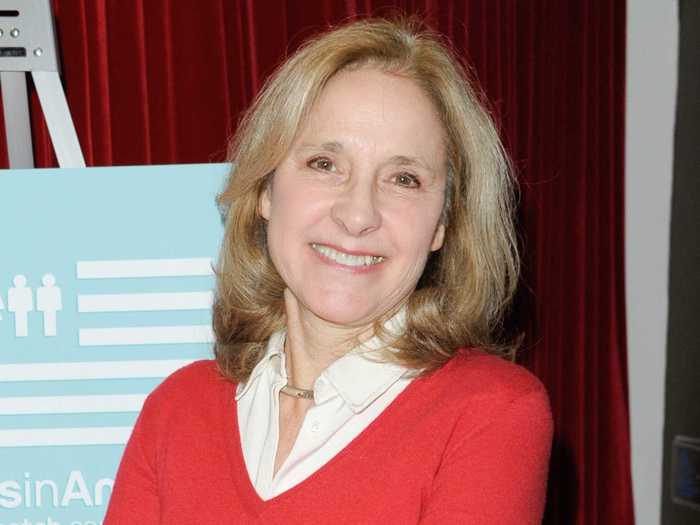
You can call Helen Fisher a love expert — she's spent over 30 years researching human emotions and romantic relationships. Fisher’s research explores what happens when two people fall in love and how factors such as sex, lust, and marriage alter brain processes. For example, in one paper she explored the long-term use of antidepressants, finding that in some people they can halt the brain’s ability to fall in love.
Fisher’s chronicled her research in several books, including "Why Him? Why Her?: How to Find and Keep Lasting Love" and "Why We Love: The Nature and Chemistry of Romantic Love" and has shared her findings a popular TED Talk about why people cheat. Fisher puts her vast relationship knowledge to use in a practical way — she’s the chief scientific adviser to Match.com.
Fisher is a biological anthropologist at Rutgers University.
Holley Moyes explores caves and examines artifacts to understand the rituals of ancient people.
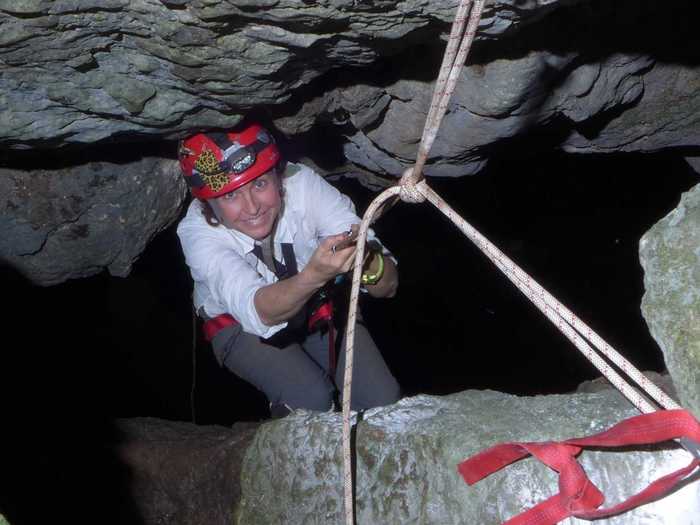
By studying the artifacts left by ancient Mayans, anthropological archaeologist Holley Moyes hopes to both preserve Mayan culture and discover stories of these ancient people. Moyes has spent the past 20 years exploring more than 100 caves in Belize, finding everything from tools to sacrificial remains to everyday pottery, to uncover how the Mayans' ideologies were created and maintained.
Discovering the why behind ancient people's decision-making allows us to understand the implications of their decisions. One particular ritual Moyes focused on was why Mayans performed human sacrifices deep inside of caves. Though it's a developing theory, Moyes believes the Mayans cared deeply about rain (their lands were dry for many months of the year) and left increasingly large sacrifices to their god, Chac, to lift a devastating drought.
Moyes is an assistant professor at the University of California at Merced.
Jennifer Doudna’s discovery could cure tons of diseases — or create superbabies.
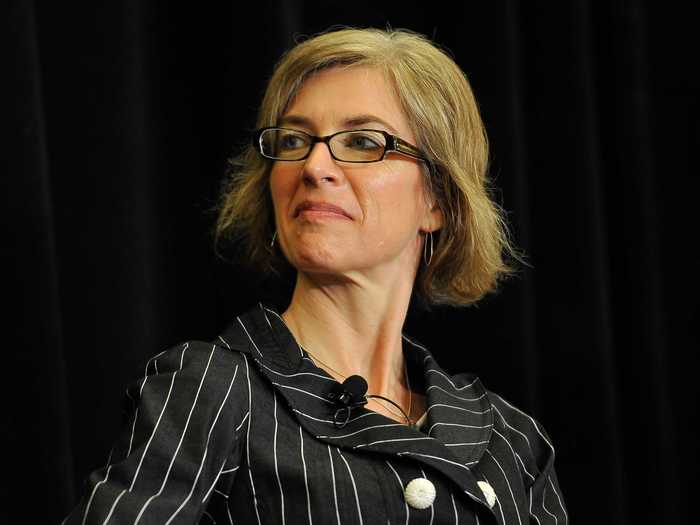
Jennifer Doudna developed CRISPR, a method of genetic engineering that allows scientists to make precise genetic changes relatively easily. Last November, CRISPR saw its first major success in two female monkey twins, Mingming and Lingling, who were born healthy but with specific genetic mutations created through the technology.
But it’s not without drama: The development of CRISPR ignited the scientific world with controversy after Chinese researchers had experimented with genetic engineering on a human embryo.
Doudna is a professor of molecular and cell biology at the University of California at Berkeley.
Jennifer Eberhardt is improving race relations between police and the communities they serve.
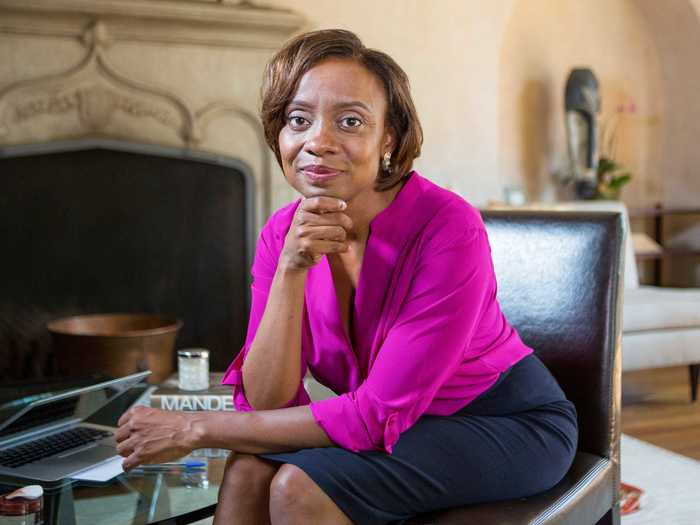
Social psychologist Jennifer Eberhardt studies the ways people judge and profile others based on race, largely focusing on crime.
At a time when these biases are extremely prevalent, the findings prove particularly poignant. Eberhardt, a 2014 MacArthur fellow, works with law-enforcement officials to apply her findings, improving police policies and helping to build trust within the communities they serve.
Eberhardt is an associate professor at Stanford University in the department of psychology.
Karen King decrypted a third-century message and helped set history straight.
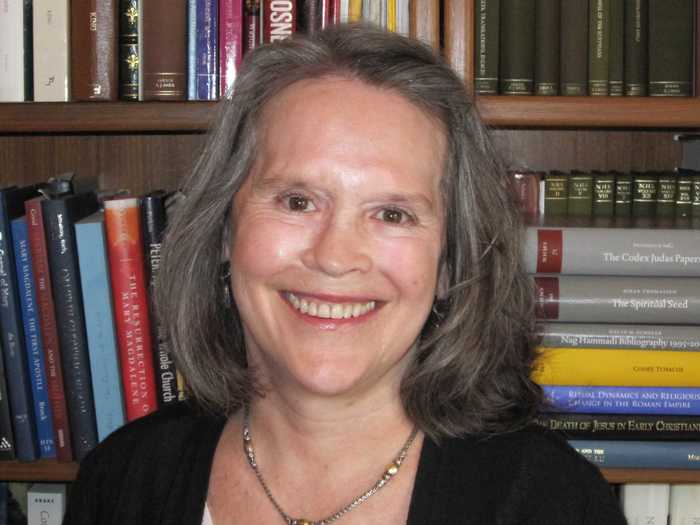
Karen King is the first woman to be appointed the title of the Hollis Professor of Divinity at Harvard. King is an expert on the history of Christianity and has written half a dozen books on the subject. So when archaeologists discovered a fragment of an inscribed piece of parchment paper dating to between the second and fourth century, with the mysterious words "Jesus said to them, my wife," King was the person they called to decrypt the message.
While many had suspected the statement implied something about a potential wife of Jesus, King firmly disabused the public of that notion by announcing in 2014 that the words had nothing to do with a wife. Instead, she said, it was referring to mothers and wives who could be disciples of Jesus, a position that virgins were generally thought to hold in early Christianity.
King is the Hollis Professor of Divinity at Harvard University.
Katherine Freese developed a revolutionary theory about a new kind of star.

Author of “The Cosmic Cocktail,” Katherine Freese was one of the first women undergraduate students to graduate with a physics major from Princeton University.
She has since taken a position as the director for one of the most prestigious theoretical institutes in the world in Stockholm and is credited for her groundbreaking work to better understand dark matter — a mysterious, invisible material that makes up 26% of matter in the universe. Scientists aren't sure what the substance is, but they call it dark matter and there are dozens of instruments around the world trying to discover particles of it.
But Freese has another idea. She developed the theory of “dark stars” that could be a bizarre type of star powered not by nuclear fusion, but dark matter. Part of Freese's work is to determine how these dark stars might be observed in the universe. If she's successful in spotting one, it could be the first time anyone has ever observed dark matter directly.
Freese is the George Eugene Uhlenbeck Collegiate Professor of Physics at the University of Michigan.
Katrin Amunts is building a 3D map of the human brain.
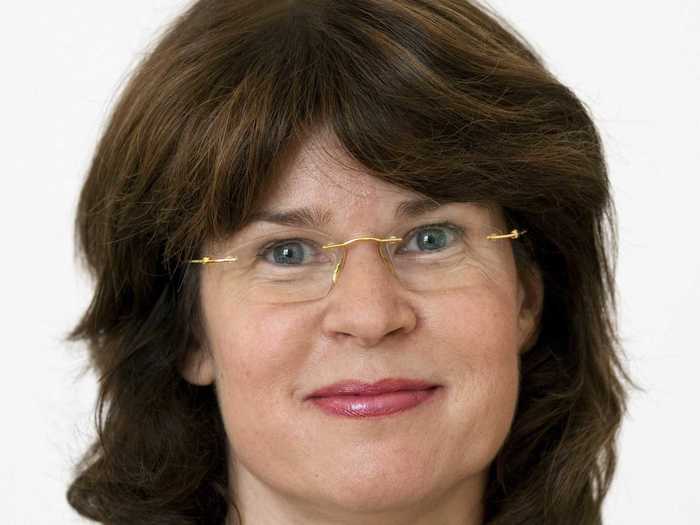
Since the dawn of the 20th century there have been more breakthroughs in neuroscience than during any other century. Yet there are still many aspects of the human brain that we're no where near completely understanding. For example, what areas of the brain are responsible for consciousness and personality?
To help solve these mysteries, Katrin Amunts is leading a team of researchers who are carefully constructing a 3D map of the brain. The team announced last year that they'd made the most detailed map of the brain ever, which should lead to unprecedented insights into the construction and organization of the brain and how it drives our behavior.
Amunts is a professor at Jülich Research Centre in Germany and the director of the Cecile and Oskar Vogt Institute for Brain Research at the Heinrich Heine University.
Maryam Mirzakhani is helping us understand the complex mathematical relationships that govern twisting and stretching surfaces.
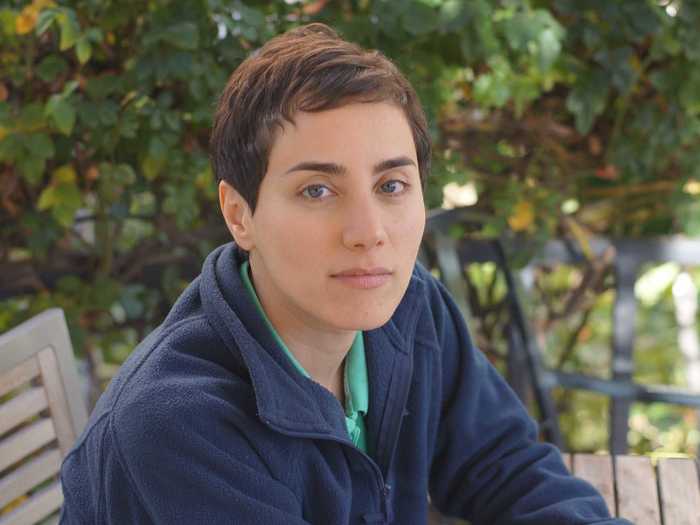
In 2014, Maryam Mirzakhani was one of only four people to receive a Fields Medal, which is regarded as the most prestigious award in mathematics since there is no Nobel Prize for math. She's also the first woman to ever receive the award.
She studies shapes and surfaces in several fields of abstract mathematics including hyperbolic geometry. Mirzakhani tackles important questions in these fields — like "how many simple closed geodesics shorter than some given length can there be on a particular Riemann surface" — by taking novel approaches to the problems that other mathematicians have said is nothing short of "truly spectacular."
Mirzakhani is a mathematics professor at Stanford University.
Nina Tandon is using stem cells to grow human bone — potentially changing how 900,000 surgeries a year are performed.
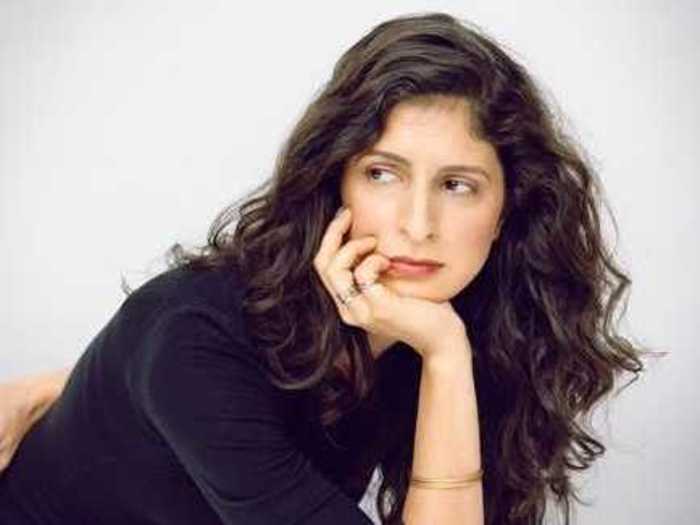
Nina Tandon, CEO and cofounder of EpiBone, is revolutionizing medicine. Her company is the first in the world to use a patient’s stem cells to grow human bone that can then be used to repair bone defects like bone loss.
Ideally, these bones can be grown to the exact shape and size needed and are easily implanted into the body because they are made from the patient’s own cells. Tandon was named a TED senior fellow last year and she's also one of Business Insider’s “40 under 40: People to watch in 2015.”
Tandon is the CEO and cofounder of EpiBone.
Sara Seager has discovered more than 700 new planets.
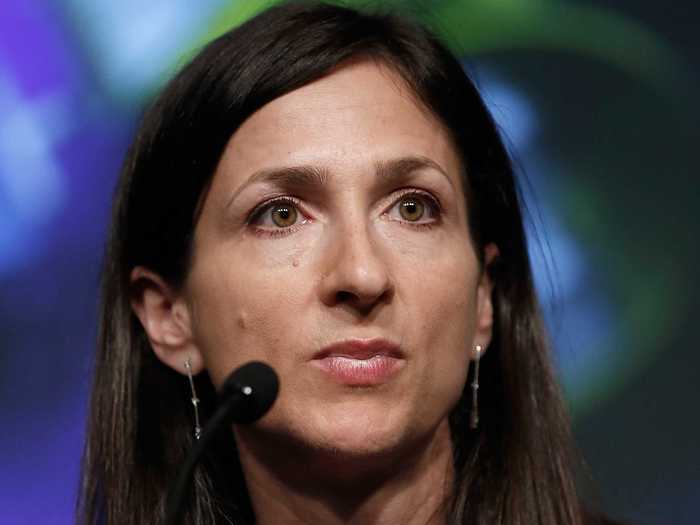
Sara Seager has one big goal: Find another Earth.
While that discovery remains elusive, she's already helped discover a whopping 715 exoplanets using the Kepler Space Telescope. By studying and understanding the composition and temperature of these planets, scientists are a step closer to being able to identify atmospheres similar to Earth's. Ultimately, if Seager succeeds in finding another life-sustaining planet, the scientific possibilities are endless.
Seager is an astrophysicist and planetary scientists at the Massachusetts Institute of Technology.
Sonja Lyubomirsky can teach you how to be happy.
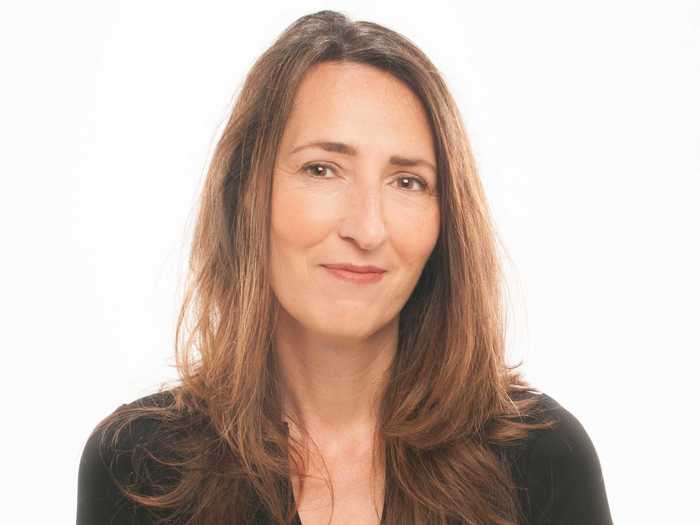
You are in control of about 40% of your own happiness, according to Sonja Lyubomirsky. The other 60% comes from a mixture of genetics and your environment.
Lyubomirsky is an expert on human happiness and author of the book "The How of Happiness," in which she explains science-backed ways humans can increase their happiness. In addition to exploring how to be happier, Lyubomirsky studies whether happiness is a good thing and what things make people most happy. So if you're feeling low, crack open her book. After a few pages you might just find a way to feel better.
Lyubomirsky is a professor of psychology at the University of California at Riverside.
Popular Right Now
Advertisement